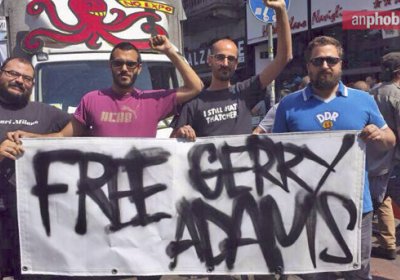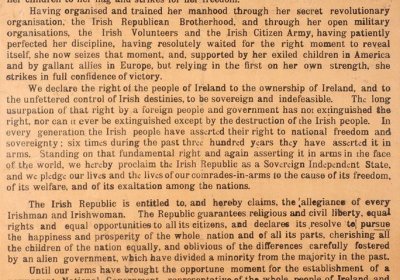A recent spate of high-profile campaigns against industrial projects based on extracting raw materials has opened up an important new dynamic within the broad processes of change sweeping South America.
Understanding their nature and significance is crucial to grasping the complexities involved in bringing about social change and how best to build solidarity with peoples’ struggles.
Many of the campaigns target that specific mining, oil, agribusiness or logging ventures share common elements.
International solidarity
The call for “$15 and a union” went up again across the United States on May 15, with a new — and bigger — group of allies.
As striking fast food workers hit picket lines across the US to demand a US$15 minimum wage and the right to organise, fast food workers and supporters rallied in 30 other counties. Italian fast food workers also went on strike on May 16.
Fast food workers went on strike in 130 US cities — some for the first time. Some stores were unable to open until managers could be called in to work the abandoned tills and fryers.
The day after the horrific May 14 mine tragedy in Soma in Turkey, people gathered in Union Square in New York to show support to the miners and condemn the conditions the workers faced.
After a few years in the making, Partizan Travel has finally been launched. It is a social enterprise that provides progressive-minded people across the world the chance to visit various countries in a different, authentic way.
Visitors will learn about those nations by meeting grassroots activists and hearing about the history and reality of their struggles. They will take part in political events, enjoy local culture and traditional food.
The private media and important actors both at home and abroad, including Washington, have downplayed, and in some cases completely ignored, the terrorist actions perpetrated against the Venezuelan government over the past three months.
Among the latest examples that have gone underreported abroad is the assassination in late April of Eliezer Otaiza, a historic leader of the Chavista movement and president of the Caracas city council.
The project is called “The Different Europe with Alexis Tsipras”. It name is written on a red background. Predictions indicate it could surpass, maybe easily, the 4% electoral threshold needed to win seats in the coming European elections.
In 2009, this threshold prevented both left lists, the Communist Refoundation Party (PRC) and the Left Ecology Freedom (SEL), both of which received only a little more than 3%, from winning seats.
This new project, however, is not a mere electoral coalition set up to clear this hurdle. In its foundation and structure it is something very different.
Alexis Tsipras, leader of Greece party SYRIZA and the Party of the European Left's candidate for president of the European Commission, released a statement on May 2 in opposition to the arrest of Gerry Adams, president of the Irish republican party Sinn Fein, on April 30.
Gaza's Ark, a Palestinian-built protest boat which was preparing to run Israel's naval blockade of the territory, was badly damaged in an explosion on April 29 that organisers blamed on Israel, Alarabiya.net said that day.
Members of the Irish community and supporters of Irish freedom gathered at the Irish Martyr's memorial Waverley Cemetery in Sydney on April 20 to commemorate the 98th anniversary of the 1916 Easter Rising.
A powerful popular protest is sweeping through the Pakistani-occupied disputed territory of Gilgit Baltistan. Since April 15, an indefinite sit-in strike (dharna) has been waged, uniting for the first time groups from a range of political and religious backgrounds against the removal of a longstanding wheat subsidy. On April 22 protesters will converge in a "long march" on Gilgit, the territory’s capital to surround the offices of local puppet government authority.
More than 1000 people from 50 countries have signed the statement launched by Egypt Solidarity in response to mass death sentences imposed by Egypt’s military regime on alleged supporters of the Muslim Brotherhood.
On March 24, a court in Minya province condemned 529 people to death for the murder of a police officer in August last year after a trial which lasted just 45 minutes, where defence lawyers were not allowed to speak.
- Previous page
- Page 158
- Next page






